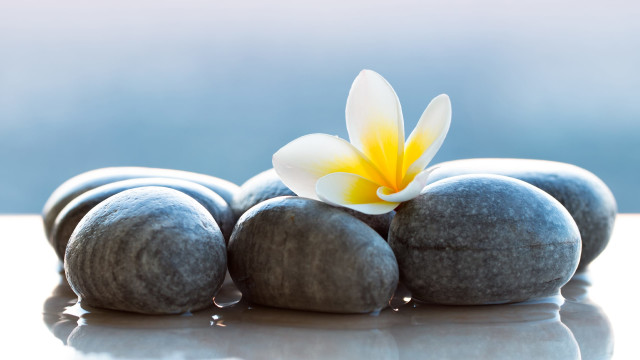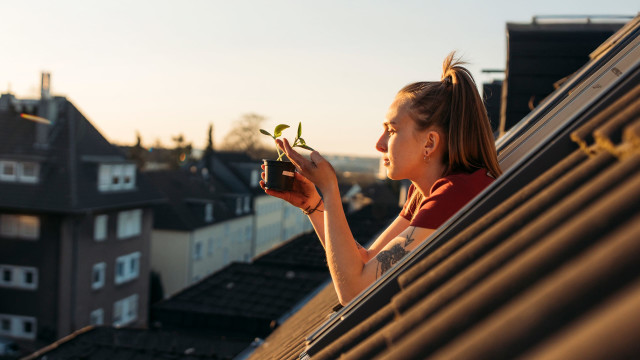4 Ways to Build A Resilient Mind

Many of us struggle with short attention spans, the mind lurches from one thing to another at a rapid speed and then you wonder why your mind isn’t at peace. How can it be? It’s exhausted!
Learning how to do mindfulness meditation by staying focused on a single object, thought, emotion, body sensation, or experience will help you cut down on distractions and strengthen your mind.
If you want to live a peaceful, purposeful, and fruitful life, you need to create a resilient mind by focusing on the development of four qualities: purpose, persistence, sensitivity, and analysis.
How to Clear Your Mind for Meditation
When I began practicing how to meditate, many thoughts would pop into my head and hamper my meditation practice. I would suddenly start busying myself with nonessential work just to delay meditating. It was easy to lose interest because I wasn’t seeing any immediate results. I even started to lack confidence because I thought I wasn’t doing it right. This was all happening because I hadn’t set a clear goal or purpose for my practice; I just sat down and started meditating because I heard it was good for me.
So, the starting point to strengthening your mind is understanding how to meditate properly, beginning with why you are meditating, what you would like to achieve, and how you will know when you have achieved it.
When we go to the gym, for example, our objective may be to become fitter or get stronger. When we learn a musical instrument, we do so because we wish to play it proficiently. Whenever we start something, we should always have an anticipated outcome that guides our planned actions.
If you wish to succeed in meditation, however, it’s also important to like the process. You need to allow the practice of meditation to capture your imagination and then it will become easier to get absorbed in it.
You must be aware of how much attention you’re paying to it, how closely you’re observing what you are doing, how effective you are being, and how much your wellbeing is improving.
Once you have made all these points clear in your mind, you will have your purpose. Now you just need to figure out how to stick to it.
Building Persistence
Even though you may have identified a clear reason to practice, without persistence, success will evade you. Single-pointed awareness can only be gained by applying effort and persistence diligently and in a balanced way.
When I say balance, I mean not too forceful and not too lax. As you think about how to start meditating, consider how a guitar string needs to be tuned just right to release a perfect note — not too tight, not too loose. Our persistence is the same. We need to tune it and be willing to put in the effort, even though the results may not be immediately noticeable.
Persistence means doing a meditation practice even when you may not feel like it. I understand that it is not easy to sit when you are tired, to sit through pain, or even to sit for extra minutes, but these are the times you need to stick with it and push through. Remember, these obstacles are all created by your mind. You are the one stopping yourself from meditating.
Tuning into Sensitivity
The next quality to develop is sensitivity. You need to be sensitive about what you’re trying to gain from the meditation, what effort you’re putting in, and what progress you’re making. You also need to be sensitive to what state your mind is in when thinking about how to meditate deeply.
Sometimes your mind will be overactive and at other times you may feel sluggish or slow. When this happens, you need to strengthen the mind before you focus on your object of meditation. If your mind is overactive, you can do this by slowing your breath and ensuring you are breathing from your abdominal region and not your chest. If your mind feels underactive, you can speed up your breath a little or even do some light stretching exercises to wake yourself up, such as yoga or tai chi.
Developing sensitivity involves becoming fully aware and engaged with what you are doing and what results you are getting. Understand that you are not looking for future achievements or looking back over past experiences, you are being sensitive to what is happening right now.
To develop sensitivity in your practice, ask yourself these questions:
• Am I sensitive to the effort I am putting in?
• Am I sensitive to my state of mind before, during, and after meditation?
• Am I sensitive to the quality of my breath or any other object of meditation?
• Am I sensitive to what hindrances are stopping me from meditating?
Learning to Analyze
Analyzing is the final key to strengthening the mind. Analyzing involves examining your tendency to fall into bad habits and wrong practices. It also involves learning to work with an imperfect mind and balancing your mental faculties.
To achieve your goals, you need to regularly analyze your practice instead of sitting there and hoping for the best. If the mind is in no mood to focus on your object of meditation, don’t give up. Investigate other topics your mind may wish to focus on, this could include a flame, chanting, or exploring body sensations. Explore new possibilities. Try different meditation techniques. If your new approach works, continue with it. If you notice it isn’t working, be willing to stop and try a fresh approach.
I learned this the hard way. I was given a practice and I plowed on for over a year, even though it wasn’t working, simply because I foolishly believed that my teacher knew better. It's important to understand that we are all different and there isn’t one practice that suits everyone. You must analyze your practice until you find one that works for you. Once you find a practice that works, it’s crucial to stick with it, but until you do, it’s fine to experiment with different meditation styles.
Remember, the goal isn’t to find the most popular practice or a practice that promises enlightenment. Look for a practice that works for you, a practice that will calm your spirit, strengthen your mind, and make your life less crazy.
Finally, please remember that it’s what you bring to the meditation that determines the results you’ll get. This places the power — and the responsibility — with you.
Try this course, A Modern Guide to Mindfulness by meditation teacher Curtis Smith, to experience how meditation may impact your mind.
Header photo: aldomurillo/E+/Getty Images







